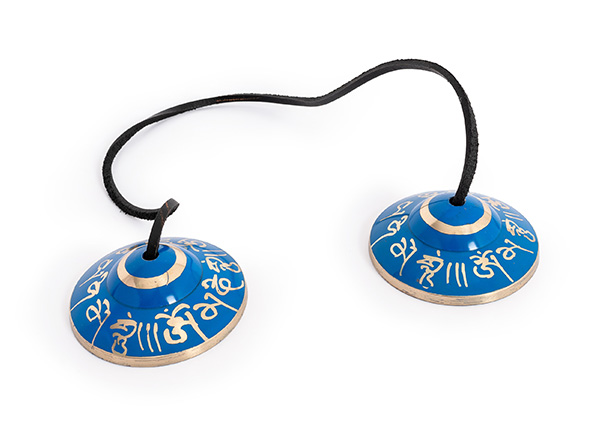Introducing the Percussion Plus Honestly Made Tingsha bells
These bells are traditionally used by Buddhists during prayers and mediations and are known for their distinct, high-pitched and long-lasting ringing tone made when struck together.
Made using only traditional methods and materials in India, these bright blue bells contain beautiful gold motifs on the top and are held together with a leather strap, ensuring durability and ease of use.
The Percussion Plus Honestly Made Tingsha bells are sourced using Fair trade principles. See below for more information about the Honestly made range of musical instruments from percussion plus.
These items are musical instruments, not toys, and there may be many small parts on, or in, some of them. Younger players should use them with supervision.
























